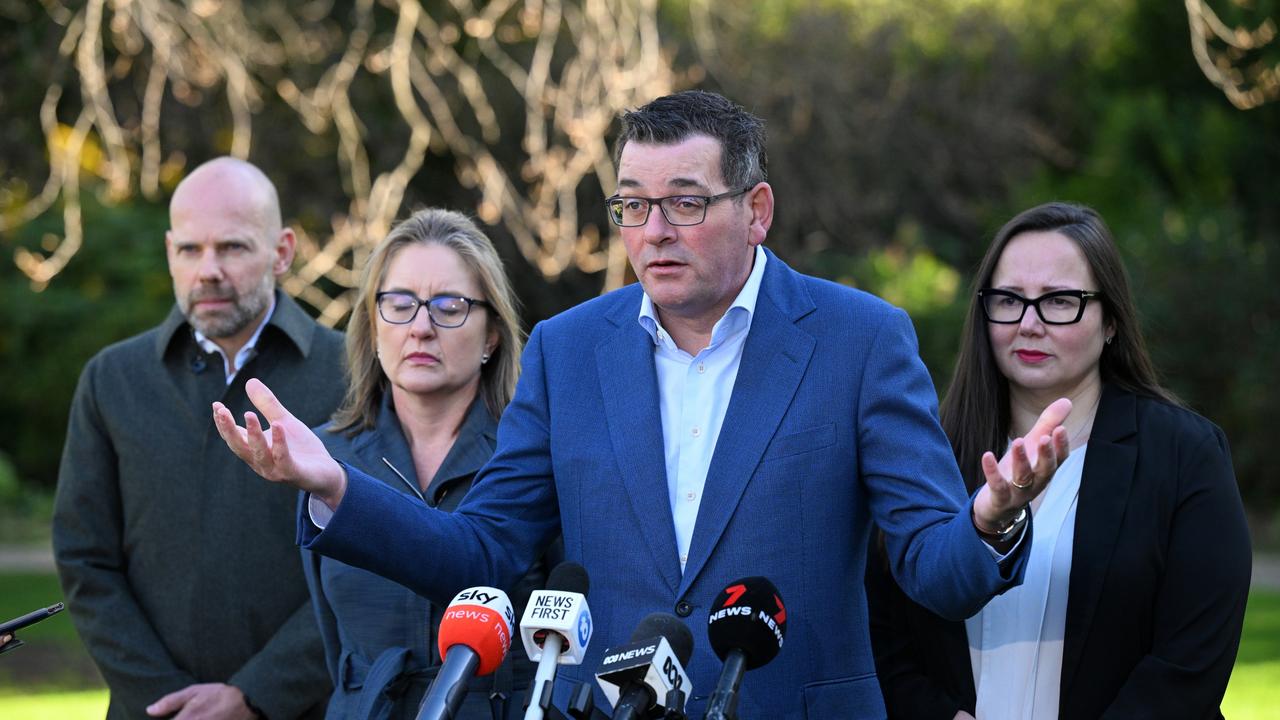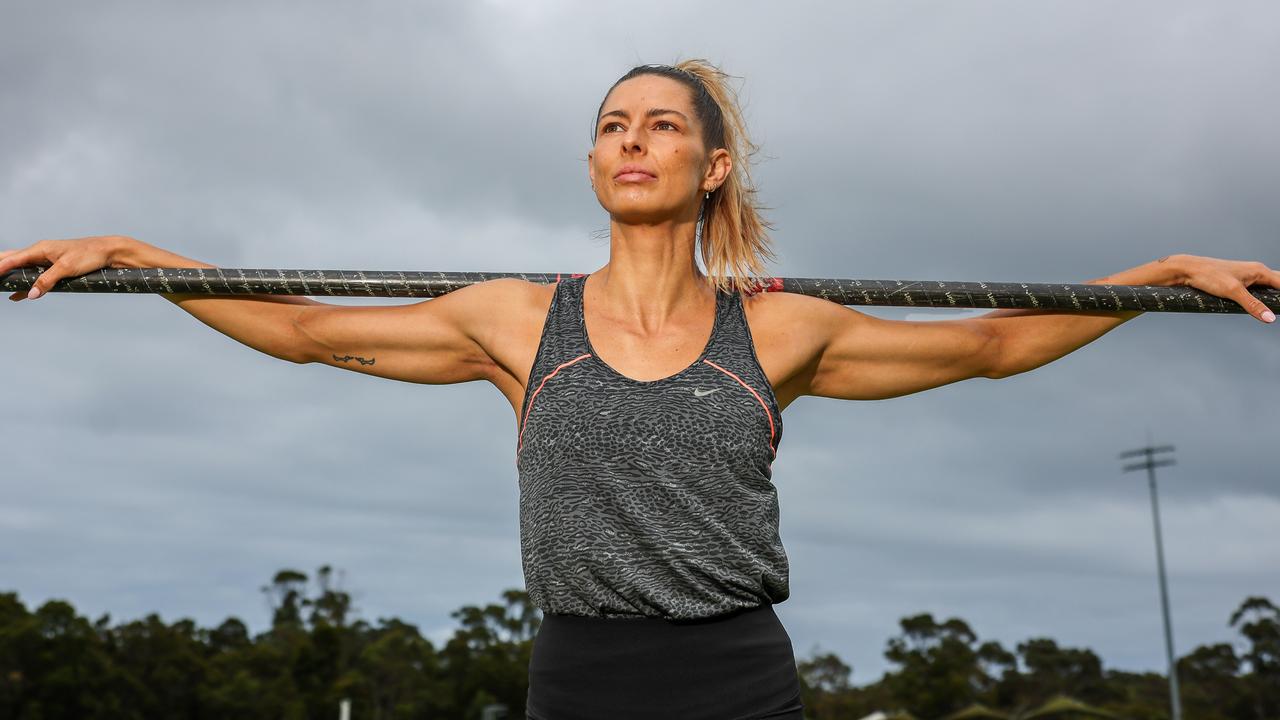Triathlon Australia baulks at adopting world body’s decision to allow trans athletes in women’s events
Triathlon Australia bosses say they won’t rush to copy a world triathlon policy which will allow trans athletes to compete in women’s events despite severe restrictions. Where they stand.

Triathlon Australia will not rush to implement a World Triathlon policy that would allow trans athletes to compete in women’s divisions, continuing a process of consultation before announcing its own guidelines.
The World Triathlon policy is not nearly as stringent as that released by swimming’s world governing body FINA earlier this year which effectively bans transgender women from competing in female categories unless they began testosterone suppression before early puberty, or by the age of 12, whichever occurred later.
But its requirement that athletes demonstrate low testosterone markers for two years following transition, and stipulation that they cannot have competed as a male in any sport for four years, mean the policy is still likely to severely restrict the number of transgender women competing at the elite level.
World Triathlon president and IOC member, Marisol Casado said Wednesday that their policy “shows that we are prioritising the fairness principle but showing inclusiveness”.
“It is fully aligned with the IOC’s recommendation, and similar to what other international federations have done in the last months,” Casado said.
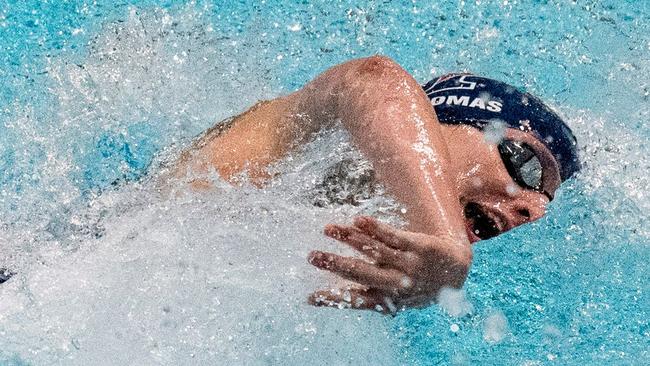
Triathlon Australia (TA) chief executive Tim Harradine said the national body had been anticipating the release of the World Triathlon guidelines and would consider the recommendations as they finalised their own policy.
“We’ve already started the process of building out our policy for this,” Harradine said.
“We’ve been looking probably more closely at the British Triathlon policy.
“We’re interested to see that (World Triathlon) have landed with testosterone markers as a part of the policy as opposed to British Triathlon, who have in their mind, protected the female category, which I would say is actually pretty common theme of feedback from female competitors in the triathlon community that I’ve heard from so far.
Harradine said he was unsure exactly where TA would land.
“Fairness in competition is really important but inclusivity is where we’re focused,” he said.
“When we’re talking about participation in a sport, it’s inclusion which is which your priority but certainly fairness is paramount for sport in general as well.”
Former multiple world champion Emma Carney said the transgender participation issue was one that “scares the hell out of female triathletes”.
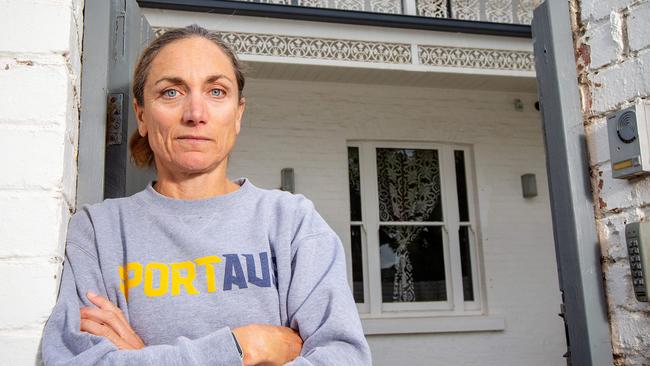
“World Triathlon what has taken (their policy) quite far. And I think it’s really important that female athletes know that they’re not just saying: ‘Oh, this is all sweet and fine’,” Carney said.
“But my question is, how will that be run?
“It all looks good on paper but it basically scares the hell out of female triathletes.
“If it’s not regulated properly, it becomes an unequal playing field.”
Carney, who is in Wales with paratriathlete Lauren Parker, preparing her for a WTS round in Swansea at the weekend, understood the sport had always been inclusive and the leniency of the policy, compared to the British Triathlon model which has created a separate category for trans athletes, continued the sport’s proud record of providing opportunity.
But she said female athletes had to feel there was a level playing field available.
“The reason isn’t just about who’s going to win, it’s about lining up and feeling that you do have a fair race,” she said.
Harradine said the final TA policy was probably a couple of months away after more consultation with a range of stakeholders and discussion at board level.
Trans swimmer ‘caused discomfort’ in locker room
A Kentucky swimmer has revealed the “edgy’’ atmosphere inside the dressing room when transgender swimmer Lia Thomas competed at America’s premier college competition, the NCAA swimming championships, recently.
Riley Gaines, who competed against Thomas, said there was “extreme discomfort” because swimmers were not forewarned the controversial transgender swimmer would be using the women’s facilities.
Thomas, who was formerly known as Will Thomas, has not had gender reassignment surgery, but has been taking hormones in order to be able to compete against women. This was before the world swimming authority FINA introduced a rule banning trans athletes from the women’s category if they haven’t transitioned before puberty.
Thomas’ dominance at the NCAA championships prompted FINA to act.
Gaines told Fox News that the swimmers were not prepared for Thomas to be in the dressing room.
“That’s not something we were forewarned about, which I don’t think is right in any means, changing in a locker room with someone who has different parts.
“So not only were we forced to race against a male, we were forced to change in the locker room with one … And so then we’re sitting there not even knowing who to talk to, who to complain to, because this kind of all happened behind the scenes and very discreetly.”
Gaines said Thomas exploded on to the national circuit in late 2021 when a swimming website posted an update: “Lia Thomas, swimmer at UPenn, posts 1.41 200m freestyle,’ which is a very, very fast time.”
Two weeks before the national championships, the NCAA announced Thomas would compete with the females.
“I was just like, mind blown,’’ said Gaines.
She said the mood dramatically changed after Thomas won on the first day.
“That next day we came back and the mood had shifted to where people were mad,” Gaines said. “There were tears, these poor ninth and 17th-place finishers who missed out on being named an all-American.”
Gaines said administrators had forgotten that the women’s sports was a protected group.
“The category was made because the playing field was not level by any means when you have them competing against men,” Gaines said.
“And so obviously it was created to ensure that fairness. And now that we are kind of completely flipping that, it devalues what it was created for.”
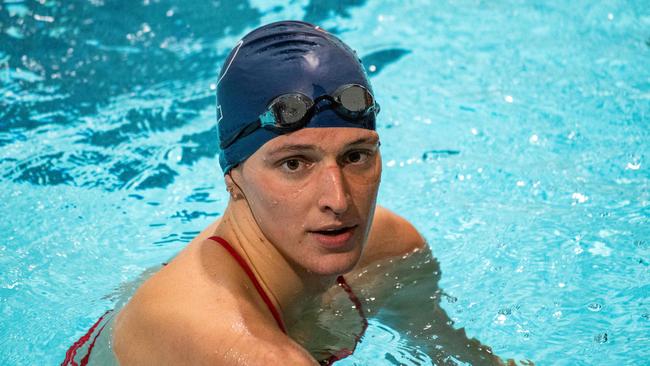
“Once you start infringing upon something that people have fought so hard to get and something that I know, personally, I have dedicated essentially my whole life to, I’m allowed to think that’s not OK and obviously not support that by any mean.’’
Gaines was also outspoken about the decision by the University of Pennsylvania to nominate Thomas for the NCAA’s Woman of the Year award.
Thomas competed for Penn’s male swim team between 2017 and 2020, but transitioned to compete with females for the 2021 season.
Thomas told ESPN after the furore at the NCAA: “Trans people don’t transition for athletics. We transition to be happy and authentic and our true selves. Transitioning to get an advantage is not something that ever factors into our decisions.”




